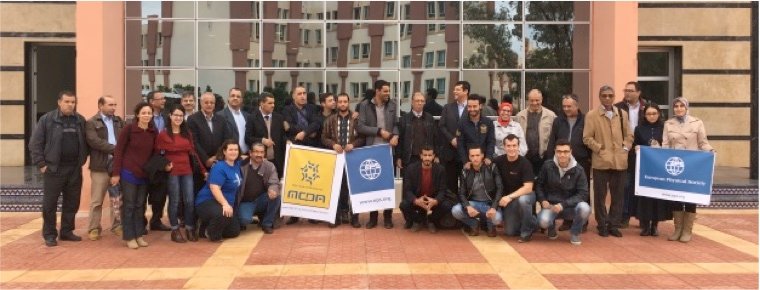The Physics for Development group represents actions that are transverse to the various research areas of physics. Its target broadly includes the support of physics and physicists who are nationals of, and working in developing countries, with a special focus on early career physicists.

JOE NIEMELA, Chair, International Center for Theoretical Physics (ICTP), Trieste, Italy.
ERNST VAN GRONINGEN, International Science Programme (ISP), Uppsala University, Sweden.
FRANÇOIS PIUZZI, Commissariat à l’Energie Atomique et aux Energies Alternatives, France.
CHERGUI MAJED, Ecole Polytechnique Fédérale de Laussane (EPFL), Switzerland
TAJINDER PANESOR, Institute of Physics (IoP), United Kingdom.
MARIE-LOUISE SABOUNGI, CNRS Orléans, France.
HAIDAR RIAD ONERA, Laboratory for Photonics and Nanostructures (CNRS/LPN), Paris, France. .
MIKKEL BRYDEGAARD Lund University, Sweden
PIERRE DEFRANCE, Université Catholique de Louvain la Neuve, Belgium
ANNICK SUZOR-WEINER, Université Paris Sud and AUF (Association des Universités Francophones).
Ahmed OUARAB, EPS. Mulhouse, France
The American Physical Society (APS), the European Physical Society (EPS) and the International Centre for Theoretical Physics (UNESCO-ICTP), in honour of the International Year of Basic Science for Sustainable Development (IYBSSD 2022), announce the initiation of the joint APS-ICTP-EPS Travel Award Fellowship Programme (ATAP).
ATAP is aimed at active early career scientists from developing countries, supporting short-term research visits to laboratories in Europe and North America.
This programme grants the major costs of two-month visits for young scientists, up to $5,000. Applicants just need to send their complete CV including publications, at least one letter of reference, a letter of agreement and endorsement from the host laboratory and a 1-page budget management plan evaluating the travel and local expenses. The materials must be sent to itlabs@ictp.it by 28 February in the year of the intended Fellowship.
The goal of ATAP is to enable selected recipients to strengthen opportunities to conduct world-class research, and establish collaborations to enhance their scientific careers. The recipients may return to the laboratories of their alma mater to use laboratory facilities they are familiar with and re-connect with colleagues.